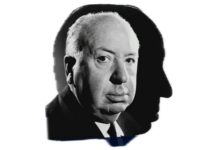I’ve recently had a personal experience that punctuated the importance of background checks and that I thought worthy enough to share. The event occurred in June — the same month the now-infamous Bernie Madoff was sentenced to 150 years in prison. The timing is fitting.
For the past 1½ years, I have worked as a consultant for a midsized manufacturing company in Southern California. Part of my work required that I stay in close communication and contact with the CFO of the company. We had frequent meetings and several lunches together over this period of time. This man was ostensibly a hard worker and model employee, and we had a good working relationship.
On a routine call to the company in June, I was surprised to hear that the CFO was no longer with the company. My first thought was that he had accepted another job offer and moved on. But when I told them I’d like a forwarding address to send him a letter, I was told I’d have to send it to prison.
This “model employee” was said to have embezzled more than $1 million from the corporation over the past six months and was planning to flee just before he was caught.
As unbelievable as that was to me, what’s worse is that this large corporation had failed to do a simple background check before deciding to hire this individual. Had they done so, they would have found that he had committed the same crime a few years earlier at a company less than three miles away.
Financial advisers are your personal CFOs, of sorts, and I believe they warrant a background check, as well. Yet most investors don’t even consider this, or they are not aware of the tools available to them to complete a basic check. Even the financial media often omits this rudimentary step individuals should take when selecting an adviser.
Here are two simple steps you can take to conduct your own background checks:
• Go to the Financial Industry Regulatory Authority Web site at www.finra.org and click on the “FINRA BrokerCheck” section. This will give you the entire employment history of the adviser, all his or her current securities licenses and, most importantly, a disciplinary history.
• If the adviser is a certified financial planner, you can check his or her status with the CFP Board of Standards. To do this, go to www.cfp.net and do a search.
Both these steps are free and require only a few clicks of the mouse.
Of course, your due diligence should by no means start and end with a background check. Getting a list of services to be provided, a disclosure of how the adviser is compensated and the investment approach and philosophy are all important to include in your selection process, but a simple background check can serve as a good starting point. It will also serve as a trust and confidence builder between you and the adviser, something that’s greatly needed in the post-Madoff era we live in.
Most people are honest and have good intentions, but the account above reminds us that the old maxim of “trust but verify” is the best policy to protect oneself.
• Orion Melehan is a financial consultant for LMC Financial Services in Scotts Valley. Contact him at or***@**********al.com.
Securities and investment advisory services offered through SagePoint Financial Inc. member FINRA/SIPC a registered investment advisor. LMC Financial Services is not affiliated with SagePoint Financial Inc. or registered as a broker/dealer.











